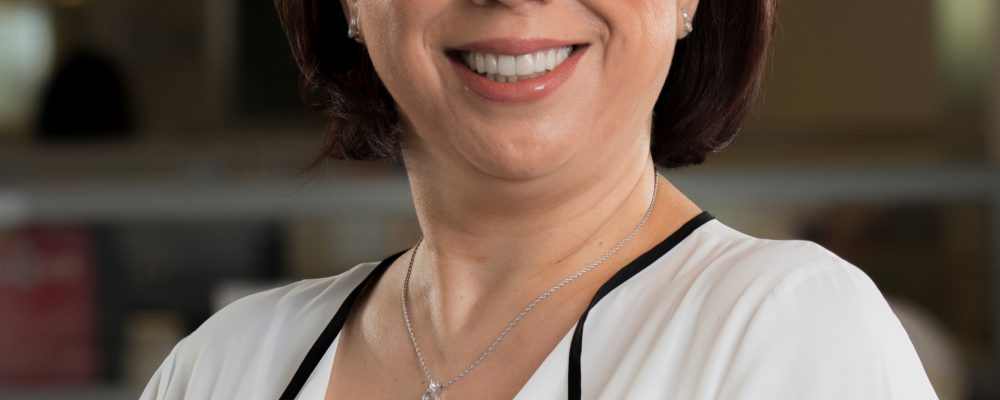The Emirates Oncology Society (“EOS”) and AstraZeneca today announce a collaboration that aims to address and improve cancer management in the UAE. With a focus on lung, ovarian and breast cancers, the initiative supports the Government’s target to reduce cancer mortality by nearly 18% by 2021. Under the banner of “United Against Cancer”, the two organisations have signed a Memorandum of Understanding (MoU) to raise public understanding of the importance of early detection of cancer. They will also explore policy recommendations to increase the number of people who undergo screenings and, crucially, to improve the referral process and support available for those who are positively diagnosed.
There are approximately 4,500 new cases of cancer diagnosed in the UAE each year. According to the UAE Oncology Task Force, only one lung cancer screening programme exists within the UAE, and for those that are more widely available, such as breast cancer screening, data suggests uptake could be as low as 6.7%,1even though survival rates are known to be improved for many types of cancer when detected at an early stage.
The collaboration between EOS and AstraZeneca, through increased awareness of early detection, access to screening and better data availability, will result in more cancer cases being identified earlier, leading to faster initiation of treatment and improved outcomes. While mandating screenings isn’t thought to be practical, a shift in policy to require insurance coverage for approved cancer screenings could ensure affordability, as well as ensure awareness programmes resonate with the educational, religious and cultural diversity of the UAE’s multinational population.
The awareness programme will be supported by a series of Patient Summits, an advocacy initiative giving health practitioners the opportunity to hear directly from patients with lung, breast and ovarian cancers. The first Patient Summit will take place in August 2020 and will focus on the often overlooked emotional burden of the disease, with the aim of allowing the parties to establish a needs based support programme to address ways of improving cancer patients’ day-to-day quality of life.
The final area of focus to support multi-dimensional care for cancer patients in the UAE, is to enhance local evidence generation and publication, particularly in the fields of lung, breast and ovarian cancer where local information is lacking. Many standardised clinical protocols are developed for western populations and do not take into account genetic and clinicopathological variation between western and Arab populations, which has a critical impact on how patients respond to therapy. Through its collaboration with AstraZeneca, the EOS aims to advance publication of local cancer epidemiology and clinical data, as well as understand the prevalence of certain genetic mutations such as BRCA genes (associated with some breast and ovarian cancers) and EGFR mutations (associated with certain subtypes of lung cancer), in order to further address gaps in the management of these devastating diseases. This data from local cancer centres across the UAE will support the clinical community to enable oncologists and cancer patients to make better informed treatment decisions.
Dr Humaid Al Shamsi, Consultant Medical Oncologist and President of the Emirates Oncology Society said “Cancer is a growing burden on society, but the UAE is committed to enhancing cancer care and reducing mortality. Despite heavy investment in screening and awareness initiatives, and clear evidence that shows many cancers can be cured if diagnosed early, uptake of cancer screening is lower than we would like. It is important that we, as a community, learn to overcome fear, stigma, denial or embarrassment when it comes to cancer screening. Through this collaboration, we aim to better understand these barriers in order to maximise early stage identification of the disease. It is essential to continue to educate the public on the benefits of early diagnosis and empower them to seek medical advice at the earliest possible moment.”
Pelin Incesu, Area Vice President, Middle East and Africa at AstraZeneca, said: “The work of the Emirates Oncology Society is vital in addressing the burden of cancer in the UAE. By focusing on early cancer detection and improved diagnosis, we believe we can directly enrich the country’s medical community and improve mortality rates. Together we will prioritise activities that will directly benefit patients and the broader cancer care ecosystem, by providing patients with the support they need and ultimately improving outcomes.”
References
- Al Shamsi, H, et al. The State of Cancer Care in the United Arab Emirates in 2020: Challenges and Recommendations, A report by the United Arab Emirates Oncology Taskforce; Gulf Journal of Oncology 32: 71-87, 2020 http://www.gffcc.org/journal/docs/issue32/pp71-87_Humaid_Al-Shamsi.pdf Accessed 22-07-2020




